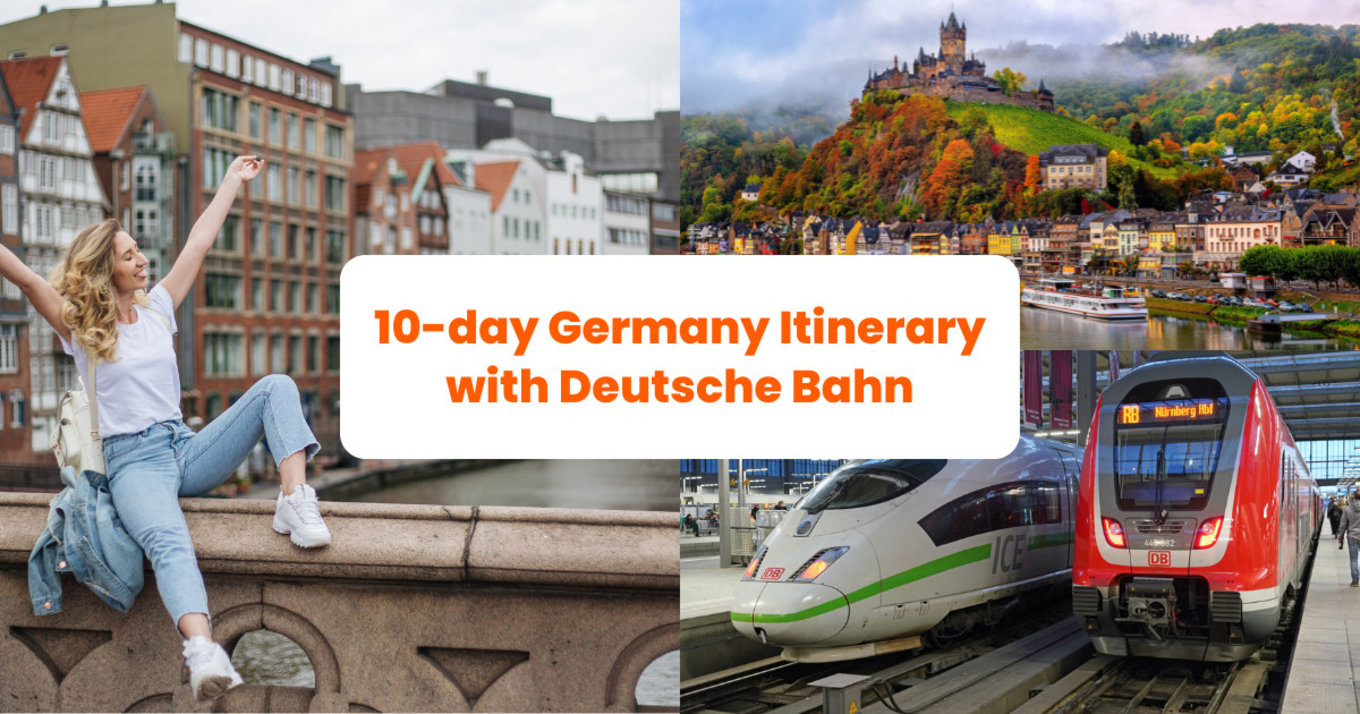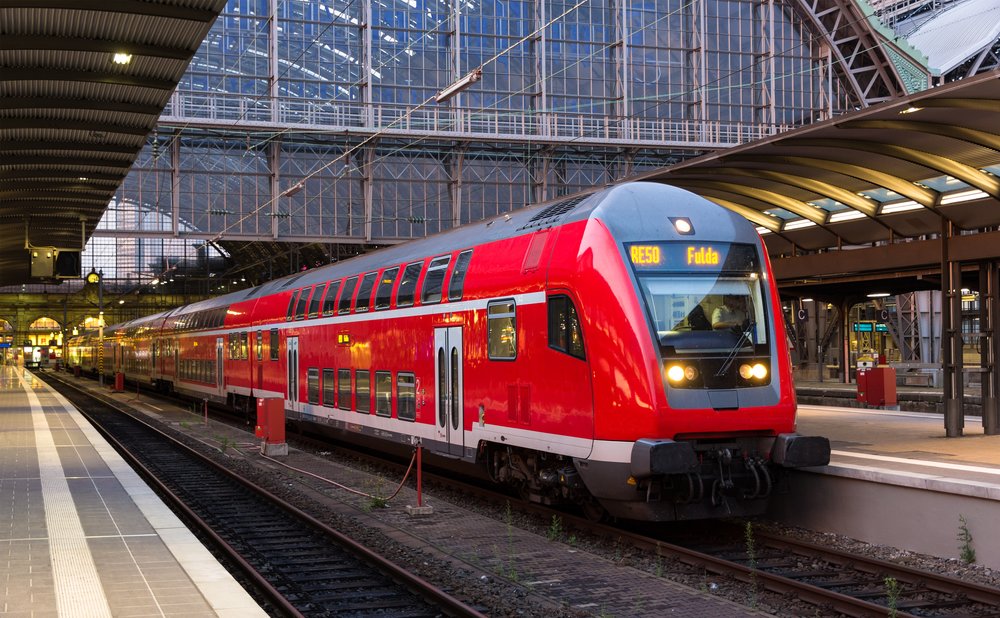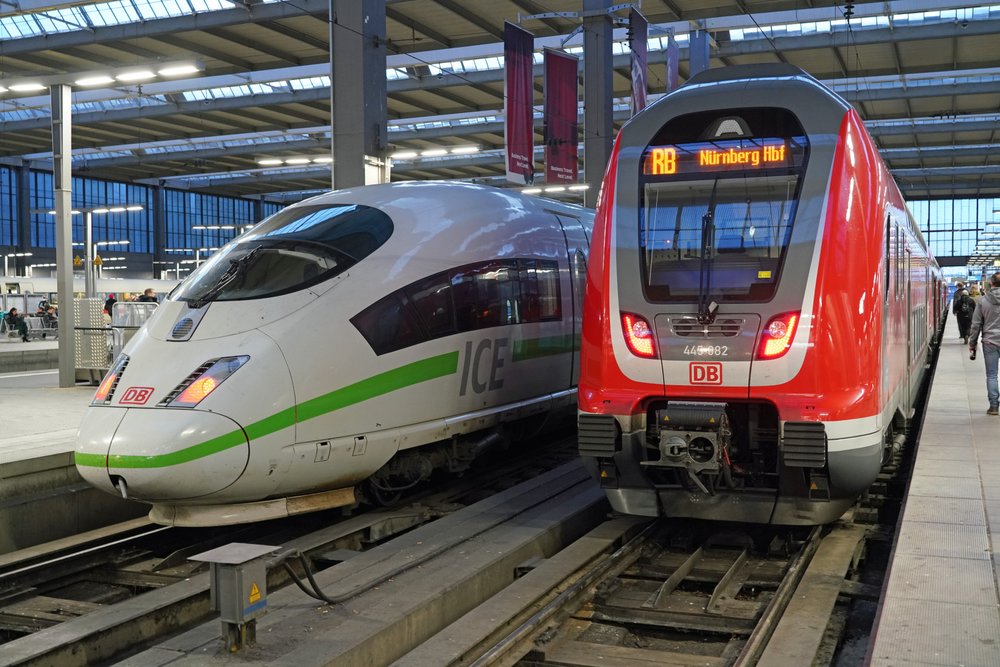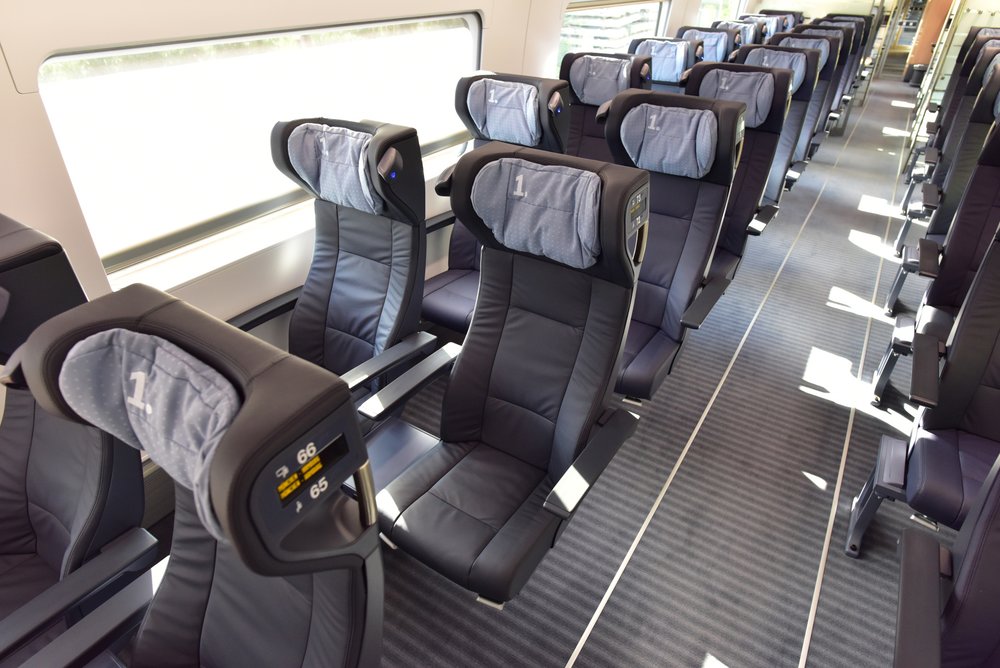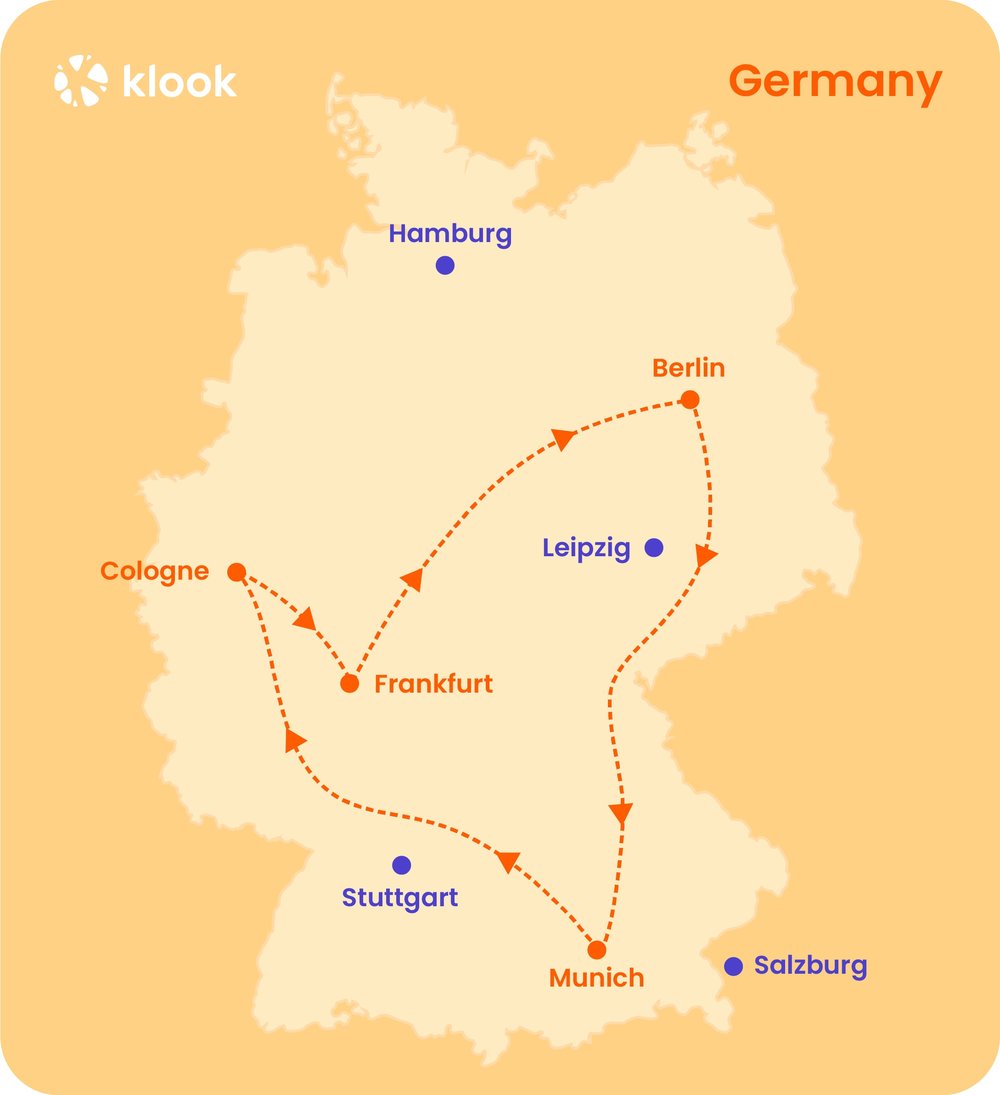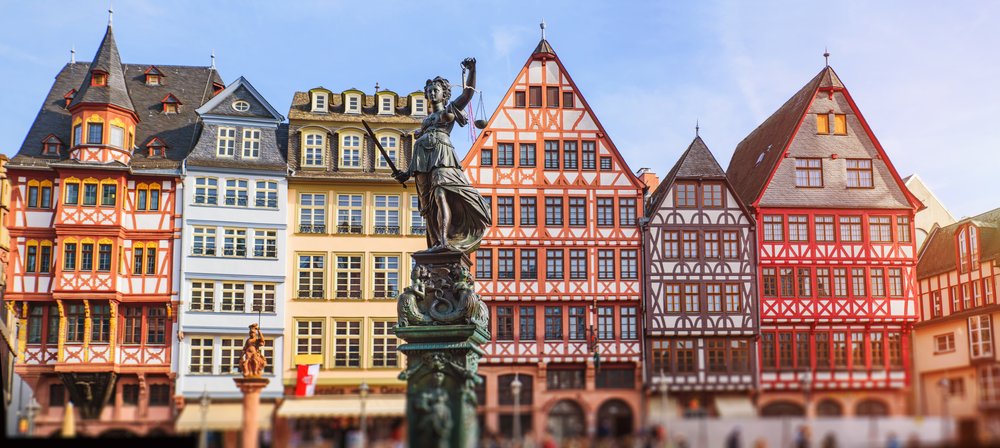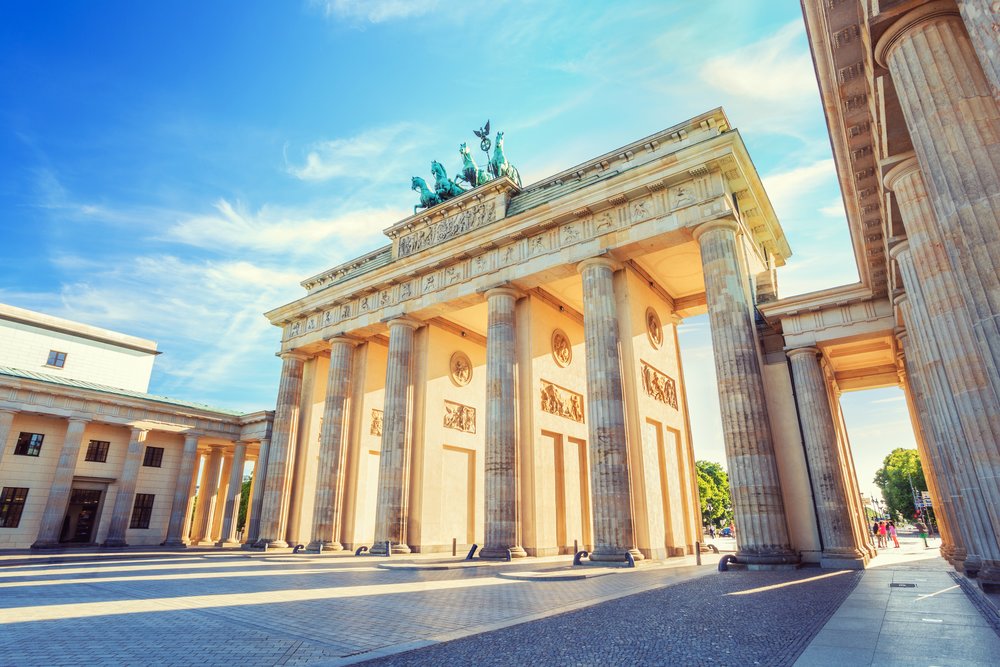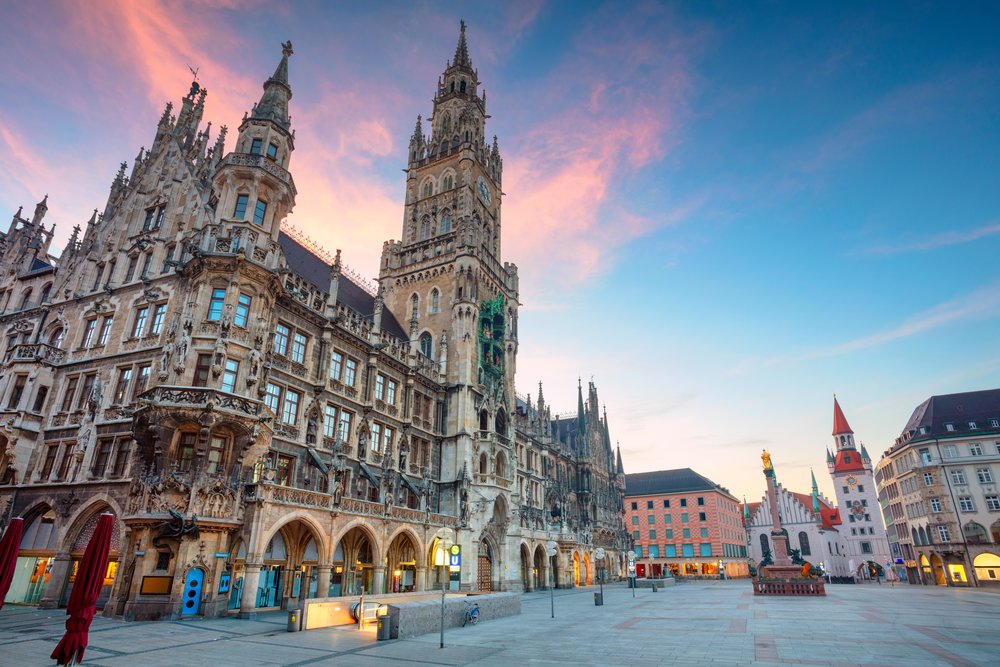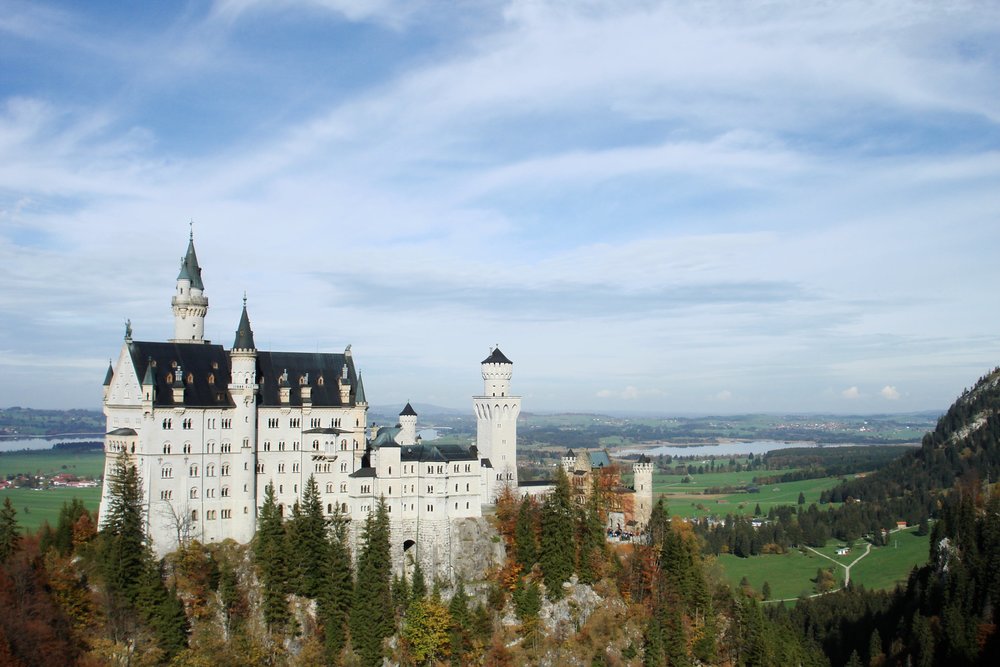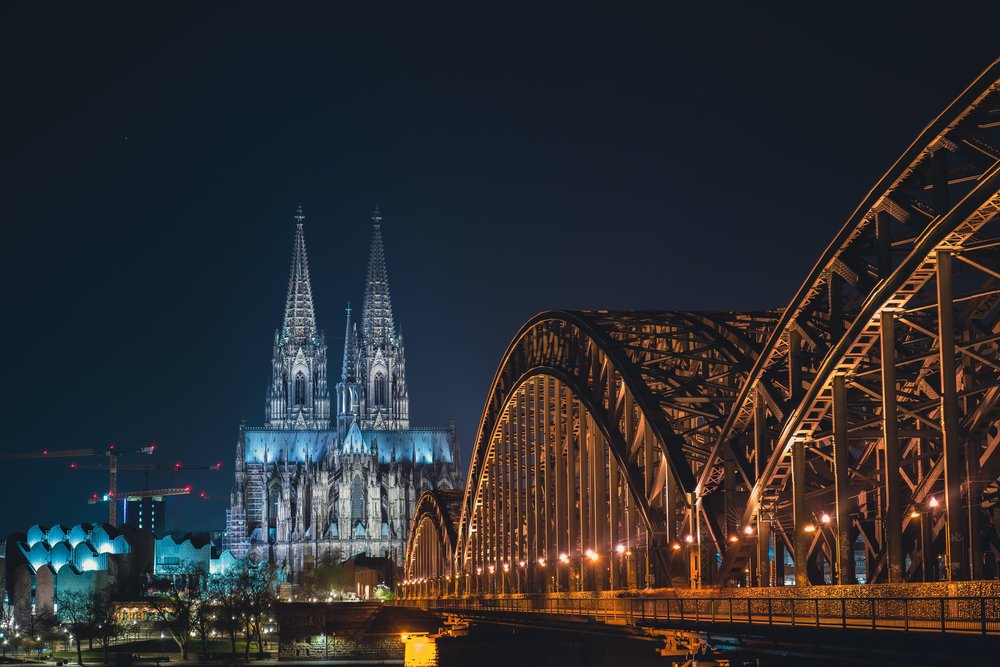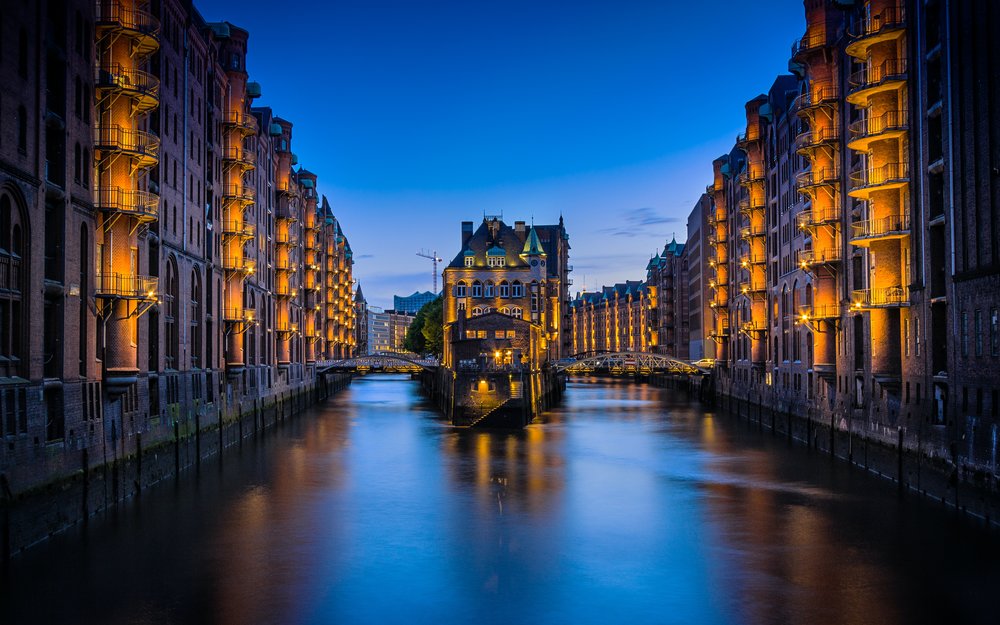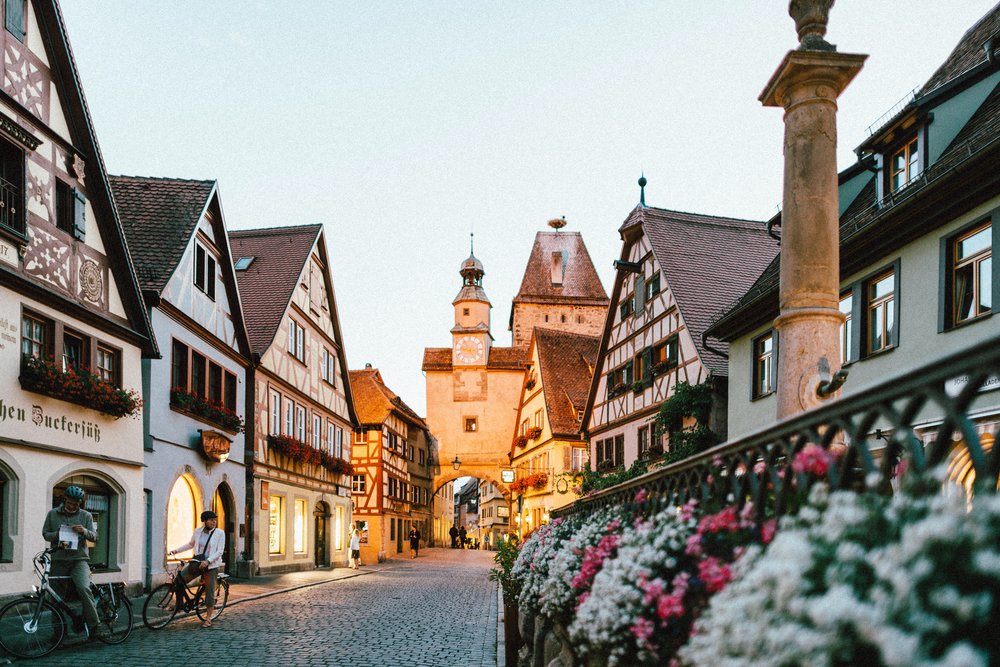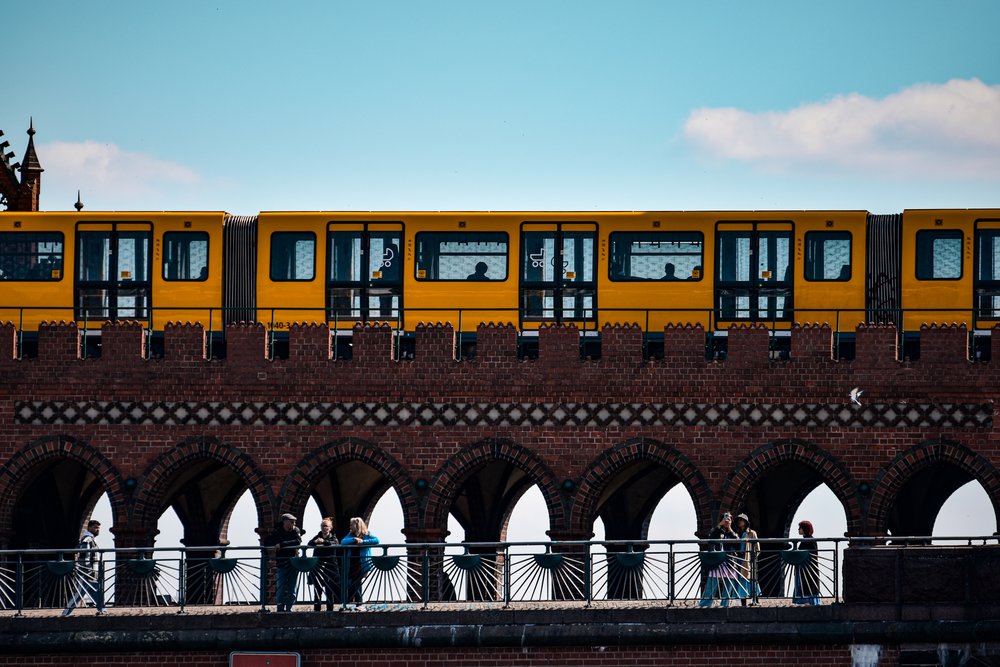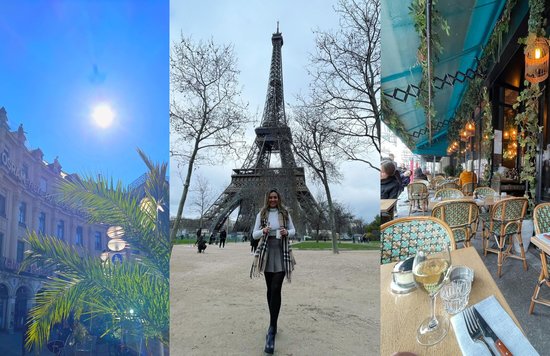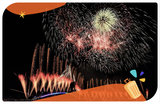Are you looking for
Germany itinerary ideas for your Germany vacation? Embark on an unforgettable German journey with the train provider in Germany — Deutsche Bahn!
Embark on a captivating journey through Germany, where historic cities like
Berlin and
Munich blend rich cultural tapestries with modern allure. Explore iconic landmarks, from Berlin's iconic Brandenburg Gate, to Munich's
Nymphenburg Palace, and venture along the Romantic Road to discover medieval gems like
Neuschwanstein Castle. This meticulously curated itinerary promises an immersive experience, unveiling the diverse facets of Germany's captivating story within a seamless blend of history, culture, and natural beauty!
Exploring the main stations of Germany
Before jumping into Germany itinerary ideas, it's best to familiarize yourself with the main and regional train stations in different cities. You'll encounter a network of regional train stations, including a central train station in the city center and often one or two additional stations in the suburbs.
Aside from learning the main train station, you should choose the appropriate departing and arrival stations to avoid inconvenience and unexpected detours! Central stations in major town, like Frankfurt am Main Hbf, Cologne Hbf (or Köln Hbf), and Berlin Hbf, offer convenient access to the city's core attractions. For your easy reference in your Germany itinerary, here are some stations to remember:
Central Stations | Suburb Stations |
Frankfurt am Main Hbf | |
Berlin Hbf | |
Munich Hbh (or Munchen Hbf) | |
Cologne Hbf (or Köln Hbf) | Cologne Messe/Deutz (or Köln Messe) *Note that Cologne Central Station, the main station of the city of Cologne, is a few hundred metres away across the Rhine River. |
Hamburg Hbf | |
Leipzig Hbf | |
Stuttgart Hbf | |
Get yourself familiar with trains in Germany
Deutsche Bahn, often referred to as DB, stands as the epitome of efficient and reliable train travel throughout
Germany. As the national railway company, Deutsche Bahn offers a comprehensive rail network that seamlessly connects major cities, from
high-speed ICE trains that whisk you between major cities with speed and style to
regional trains and intercity trains that offer a more leisurely journey, allowing travelers to explore the charm of smaller destinations. Here are the most common train types you can find throughout your own rail network of travel:
ICE Train (InterCityExpress): These long distance trains connect major cities like Berlin, Munich, and Frankfurt. These sleek trains offer comfort, efficiency, and impressive speeds, making the ICE Train the ideal choice for covering long distances swiftly.
IC Train (InterCity): Intercity trains provide a balance of speed and accessibility, connecting both major cities and smaller towns across Germany. With comfortable seating and onboard amenities, intercity trains offer a relaxed journey for both short and medium distances.
EC Train (EuroCity): For international travel, EC trains seamlessly connect German cities with various European countries. Comfortable and well-equipped, these long distance trains ensure a smooth and enjoyable cross-border experience.
RE (Regional Express) and RB (Regionalbahn): Catering to regional transport needs, these regional trains link smaller towns and suburbs. These regional trains are perfect for exploring the charm of Germany's countryside and lesser-known gems.
S-Bahn: Operating within metropolitan areas, S-Bahn is one kind of local trains that provide efficient urban transportation, connecting city centers with suburbs. These local trains are a convenient choice for daily commuting and exploring city attractions.
Ticket types
Deutsche Bahn offers a variety of train ticket options to cater to diverse travel needs. Here are the 3 key ticket types that make your journey with Deutsche Bahn flexible and tailored to your preferences:
Flexpreis (Flexible Fare): Ideal for those seeking flexibility, the Flexpreis allows changes to your travel plans without incurring additional fees. This ticket is perfect for travelers with unpredictable schedules.
Sparpreis (Saver Fare): For budget-conscious travelers, Sparpreis offers discounted fares for booking in advance. While these tickets are non-refundable, they provide significant savings for those who plan ahead.
Super Sparpreis (Super Saver Fare): Offering even greater savings, Super Sparpreis tickets are available for early bookers willing to commit to specific trains and travel times. These tickets come with limited availability, so securing them in advance is advisable.
Travel Around Germany in 10 days
10-day Itinerary |
|---|
Route | Train carrier | Train duration | | Link to book |
Frankfurt > Berlin | DB (Deutsche Bahn) | 4 hours 30 mins | From EUR 27/ adult | Frankfurt to Berlin |
Berlin > Munich | DB (Deutsche Bahn) | 4 hours | From EUR 66/ adult | Berlin to Munich |
Munich > Cologne | DB (Deutsche Bahn) | 4 hours 30 mins | From EUR 55/ adult | Munich to Cologne |
Cologne > Frankfurt | DB (Deutsche Bahn) | 2 hours | From EUR 22/ adult | Cologne to Frankfurt |
Berlin <> Hamburg | DB (Deutsche Bahn) | 2 hours | From EUR 30/ adult | Berlin to Hamburg |
Berlin <> Leipzig | DB (Deutsche Bahn) | 1 hour 15 mins | From EUR 22/ adult | Berlin to Leipzig |
Munich <> Stuttgart | DB (Deutsche Bahn) | 2 hours | From EUR 22/ adult | Munich to Stuttgart |
Day 1-2: Frankfurt
Frankfurt, Germany's financial powerhouse, harmoniously blends its rich history with contemporary vibrancy. Renowned as "Mainhattan" due to its futuristic skyline along the
River Main, the city's allure lies in its diverse offerings. The Römer square, with its medieval architecture, showcases Frankfurt's historic charm, while towering skyscrapers like the European Central Bank symbolize its modern economic prowess.
Cultural enthusiasts find solace in the Museumsufer, home to world-class institutions such as the Städel Museum. The Palmengarten provides a tranquil escape, and the city forest invites nature lovers to explore its vast greenery. Culinary adventures await in the Sachsenhausen district, where traditional Ebbelwei and local delicacies beckon. Frankfurt's central and convenient location, and excellent transport links make it an ideal starting point for exploring not only the city's multifaceted offerings but also the surrounding regions, ensuring an enriching experience for every visitor.
Day 3-5: Berlin - The symbol of German reunification
At the heart of the city stands the Brandenburg Gate, an iconic symbol of German reunification and a must-visit landmark. Nearby, the Reichstag building, with its glass dome offering panoramic views, epitomizes Berlin's architectural prowess.
Museum Island includes the Pergamon Museum and the Neues Museum. The remnants of the Berlin Wall, adorned with murals, serve as poignant reminders of the city's divided past, while Checkpoint Charlie offers insight into the Cold War era.
For a taste of Berlin's artistic vibrancy, the East Side Gallery, a stretch of the Berlin Wall covered in murals, is a living canvas of contemporary expression from East Germany back in WWII. The bustling Alexanderplatz, home to the iconic TV Tower, provides a panoramic view of the cityscape.
To delve deeper into Berlin's history, the Topography of Terror Documentation Center chronicles the dark days of the Nazi regime. Further, the Sachsenhausen Concentration Camp, a holocaust memorial, provides a somber reflection on the atrocities committed during World War II. From historical landmarks to sobering memorials, Berlin is a bustling city that invites visitors to explore its multifaceted identity, ensuring an immersive journey through time and remembrance.
Day 6-8: Munich - Heading to Southeastern Germany
Munich, as the 3rd biggest city in Germany, enchants visitors with its harmonious blend of rich traditions, cultural splendors, and picturesque landscapes. Nestled along the banks of the
River Isar, Munich radiates a unique charm that seamlessly fuses historic charm with contemporary allure. The city's heart beats at
Marienplatz, where the
Glockenspiel delights onlookers with its animated performances against the backdrop of the New Town Hall.
While Munich itself is a treasure trove of architectural marvels, the allure extends to the outskirts. A short drive to the southeast unveils the ethereal beauty of Königssee Lake. Nestled amid the Bavarian Alps, this glacial lake captivates with its crystal-clear waters and dramatic mountainous surroundings.
Further to the southern Germany, the fairytale-like Neuschwanstein Castle stands as a Bavarian crown jewel. Perched atop a hill against a backdrop of the Alpine foothills, this 19th-century castle inspired by romantic ideals offers breathtaking views of the surrounding landscapes. As one of Germany's most visited attractions, Neuschwanstein Castle transports visitors into a realm of fantasy, showcasing the architectural dreams of King Ludwig II.
Day 9-10: Cologne
Cologne, a city on the banks of the Rhine River in western Germany, stands as a vibrant testament to a harmonious blend of ancient history and modern vitality. Dominating its skyline is the iconic
Cologne Cathedral, which is one of the most visited landmarks in Germany. This masterpiece of
Gothic architecture, with its intricate details and soaring spires, is a symbol of the city's resilience, having withstood centuries of history.
Beyond its architectural marvels, Cologne beckons with a dynamic cultural scene. The Museum Ludwig showcases a remarkable collection of modern art, including works by Picasso and Warhol. The city center's lively waterfront and the Hohenzollern Bridge provide picturesque settings for leisurely strolls, while the Rheinauhafen district offers a contemporary contrast with its cutting-edge architecture.
Cologne's identity is also deeply intertwined with its annual Carnival, a lively and colorful celebration that draws revelers from around the world. The city's welcoming atmosphere extends to its cozy beer gardens, where locals and visitors alike gather to savor the renowned Kölsch beer.
(Optional) Hamburg, Leipzig, Stuttgart
Hamburg: a dynamic port city on the Elbe River, captivates with maritime allure. Explore the iconic Elbphilharmonie and the historic Speicherstadt, a colossal warehouse district. Lively neighborhoods and the scenic Alster Lake add to Hamburg's vibrant charm.
Leipzig: Leipzig, steeped in cultural history, beckons as a haven in Saxony. The St. Thomas Church and Auerbachs Keller echo with Bach and Goethe's influence. The Spinnerei, a converted cotton mill, showcases Leipzig's modern artistic vibrancy.
Stuttgart: Stuttgart, at Swabia's heart, seamlessly blends automotive elegance with cultural sophistication. Museums like Mercedes-Benz and Porsche pay homage to automotive legacies. Ludwigsburg Palace, Stuttgart State Opera, and Schlossgarten's green expanse embody the city's cultural and architectural richness.
Exploring other modes of travel in Germany
For convenient city transport, there are Europe tour packages that include metro passes, and airport buses in Germany which offer great advantages.
The Munich Bus by Lufthansa Express Bus provides hassle-free transfers with departures to the Munich International Airport every 20 minutes.
Similarly, there are options in the market, like city cards. The
Munich CityTour Card is your ticket to limitless exploration, including unlimited public transport and exclusive gastronomy, culture, and more discounts! Travel alone or in a group, with kids aged 0–6 riding free, from EUR 15.07/pax.
The
EasyCityPass Berlin Card ensures
smooth city commuting. Priced from EUR 10.41 per person, this transport-only card provides unlimited rides on trains, trams, metro, and buses within a 15 km radius around Berlin, including the city center of Potsdam and BER Airport.
If you’re looking for a one-stop ticket, you can also consider the
Berlin 24-Hour Transportation Ticket. This regional day ticket guarantees unlimited travel within a 15 km radius, covering trains, trams, metro, and buses.
Why should you consider taking Deutsche Bahn to visit Germany?
Exploring Italy by Deutsche Bahn has its own perks that will make your trip all the more enjoyable, which are:
Shorter travel time: Right off the bat, the shorter transfer time elevates the experience since train stations are usually in the city center, and easy access to major attractions is guaranteed. This means less time spent on the road to and from airports. Rental car is also a popular choice for Germany road trip yet it takes a longer time to transfer from city to city compared to public transportation.
Cost-effectiveness: Train travel is also cost-effective, with the caveat that early booking is key to securing lower ticket prices. For peak seasons like summer, booking cheaper train tickets at least four weeks in advance is recommended to take advantage of discounted fares for the same ticket!
#KlookTip: Train ticket prices can be 3x more expensive than the the usual in peak season compared to off season. If you are more budget concerned and want to look for cheaper train tickets elsewhere, consider traveling in winter time!
Travel without trouble: Moreover, train travel is hassle-free with e-tickets offered by many carriers, eliminating the need for pre-trip check-in, saving time (and saving money!), and reducing stress. This ease of redemption, coupled with various ticket pick-up options, simplifies the train service process for tourists.
Spacious storage space: You can also rely on trains for the ample luggage space provided, especially for those with large or heavy bags. Unlike budget airlines that often charge exorbitant fees for additional luggage, trains offer more flexibility and comfort!
Frequently Asked Questions
1. What is the difference between first and second class in Deutsche Bahn?
Deutsche Bahn's First-class tickets typically offer more spacious seating, fewer passengers per carriage, and additional amenities like complimentary drinks and snacks. Second-class tickets provide a comfortable standard travel experience.
2. Can I bring my luggage on trains in Germany?
Yes, you can bring your luggage on passenger trains too. However, there are size and weight restrictions, and larger items may require a reservation. Check the specific rules for the train service you're using.
3. How early should I arrive at the train station?
Arriving at least 30 minutes before departure is recommended, especially if you need to collect tickets or have reserved seating.
4. How do I navigate train stations in Germany?
Deutsche Bahn stations in Germany are generally well-signposted in both German and English. Look for departure boards, Deutsche Bahn desks, and platform signs to navigate your way easily.
5. Can I refund my Deutsche Bahn bookings when there's a strike?
Contact Klook Customer Support for refund or exchange in case you need any emergency services. You may need to provide proof of arrangement of alternative, public transportation, or flight/hotel/trip cancellation upon carriers' requirements. Refunds may take 2-8 weeks.
6. Are there regional passes available for exploring Germany?
Yes, consider options like the
German Rail Pass for unlimited travel within a certain period, offering flexibility for day trips or extensive exploration.
7. Do my Europe train tickets include seat reservations?
Yes! International and domestic high speed trains ticket prices are inclusive of seat reservations. You will be automatically assigned a seat by the booking system.
Book your Germany trip now!
Follow our Germany itinerary and book trains with us for an enriching and seamless travel experience. Booking
trains with us, particularly through Deutsche Bahn (DB), ensures reliability and convenience. As Germany's premier railway company, the DB trains offer an extensive network, connecting you effortlessly to iconic cities and hidden gems. Whether it's the efficiency of high-speed ICE trains or the charm of regional routes, a DB train always provides a comfortable and scenic journey. Take advantage of
various ticket options, including discounts and passes, making your travel cost-effective. Trust us to guide you through Germany's treasures and streamline your rail travel, ensuring every moment is filled with discovery and enjoyment.
Related Articles

